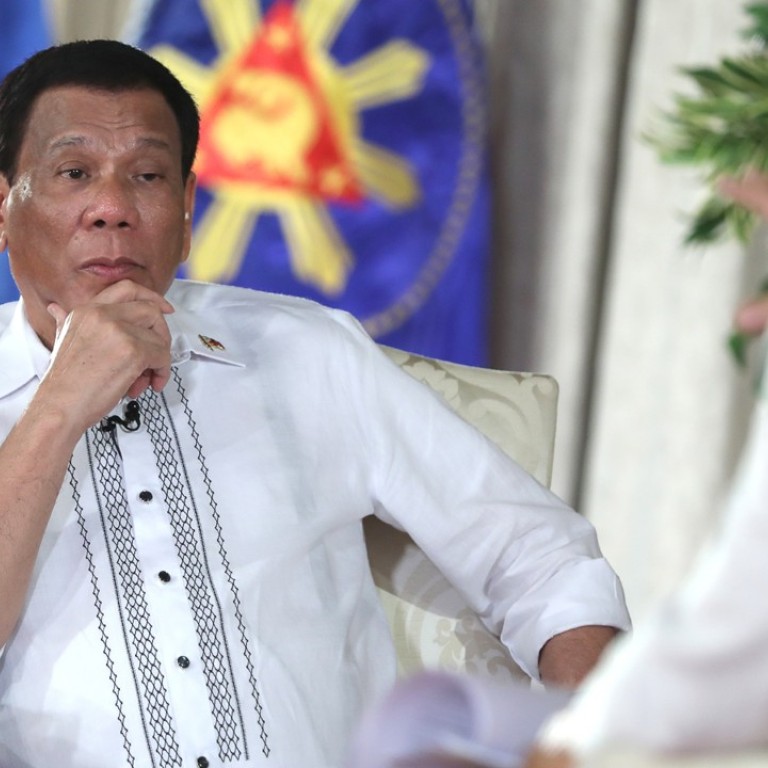
‘Difficult for my common sense to accept’: former Philippine general slams Duterte’s move to abolish critic’s amnesty
Jose Almonte said president’s attempt to abolish amnesty for rebellious senator was ‘unjust’, since he had already served time for the crime
Philippine presidential spokesman Harry Roque may have spoken too soon when he said a paid newspaper advert calling Senator Antonio Trillanes “a disgrace” to men in uniform “reflects the overall sentiment of the military”.
President Rodrigo Duterte has been trying to scrap Trillanes’ amnesty for two coup attempts against former president Gloria Arroyo.
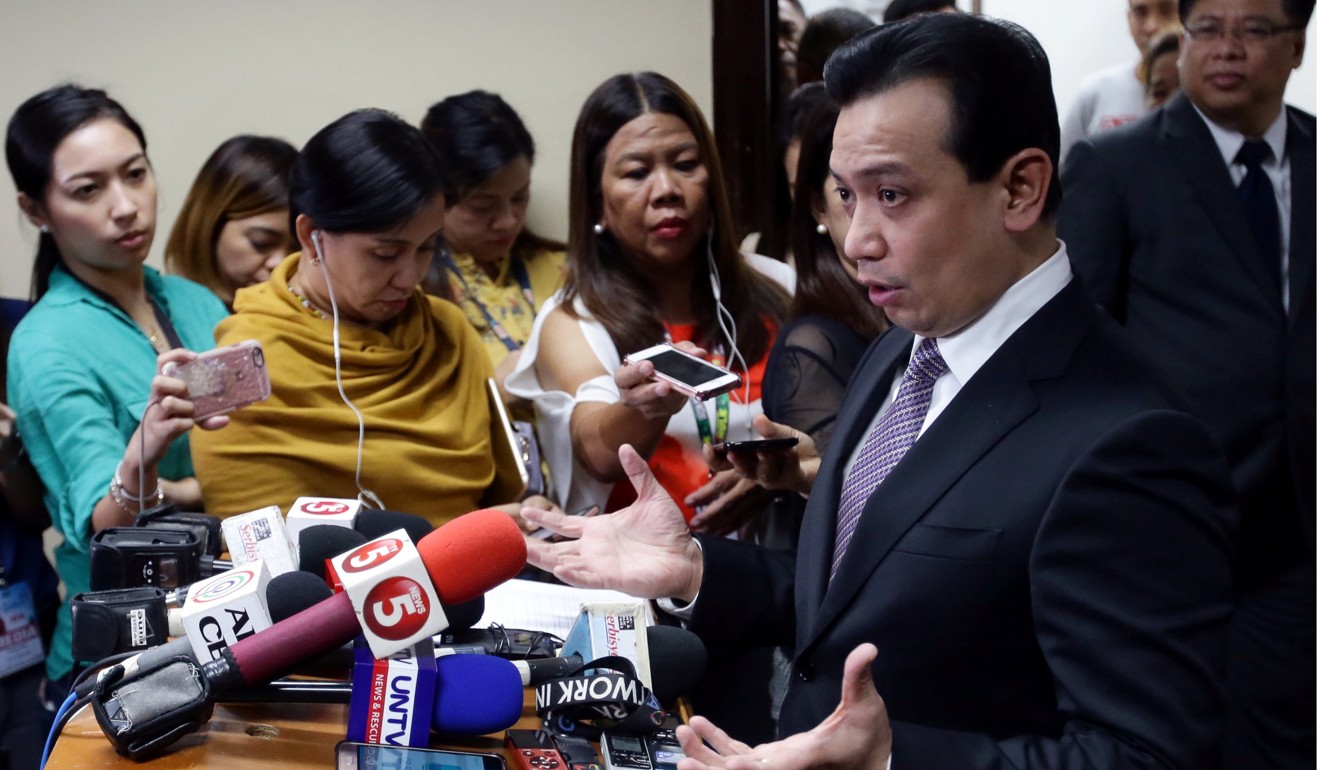
The September 14 advert said a southern chapter of the Philippine Military Academy Alumni Association wanted the senator removed from its roster for the failed coups. Roque said the advert shows Trillanes has no support among active or retired officers.
But a prominent association member disagrees.
Retired general Jose Almonte, who was close aide to former president Fidel Ramos, is unhappy with Duterte scrapping any amnesty. Almonte called Duterte’s government “a bukbok presidency”. The Tagalog word “bukbok” means full of weevils and was recently in the Philippine news after Duterte’s agriculture secretary denied there was a rice shortage and told the public it was safe to eat the bukbok-ridden rice being sold by the state.
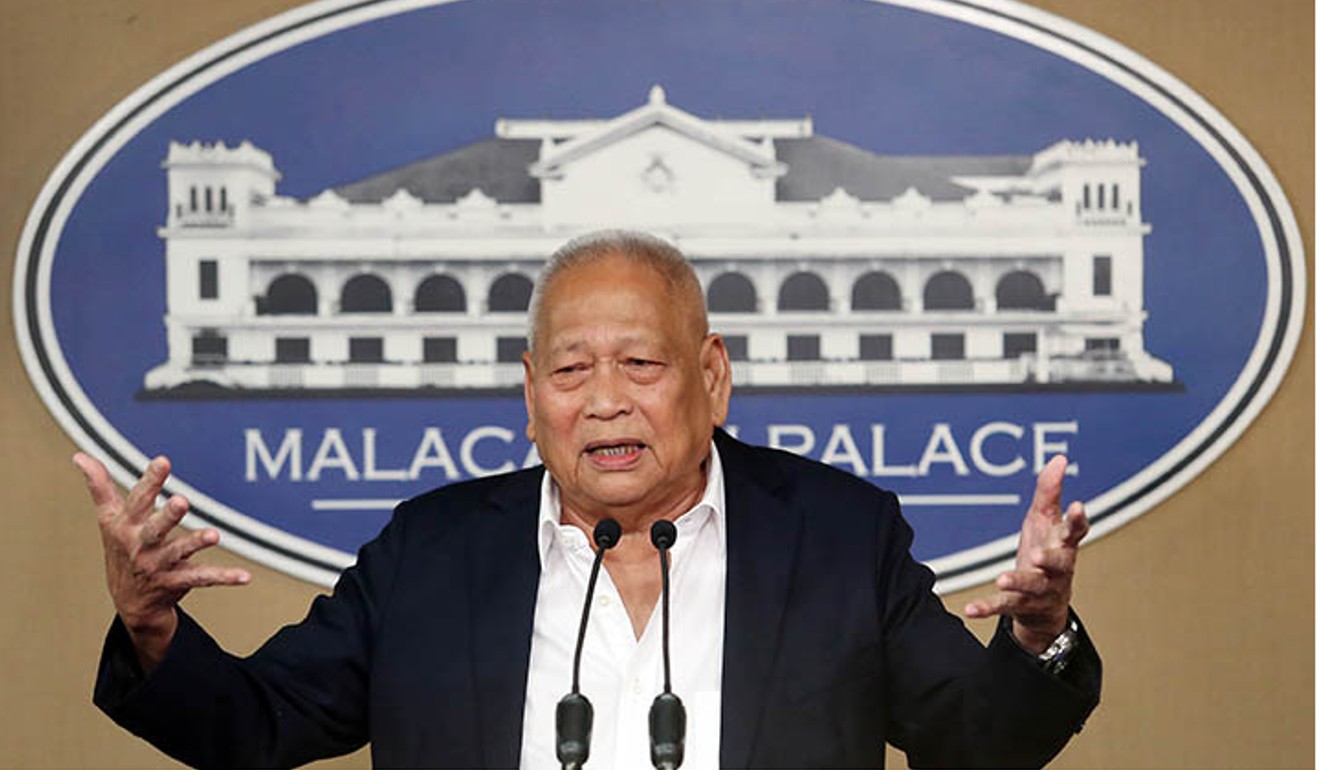
Almonte said Duterte’s reasons for voiding Trillanes’ amnesty and ordering his arrest and court martial were “difficult for my common sense to accept”.
Duterte insisted on September 11 that Trillanes’ amnesty was void because he could not produce a copy of his application. He also argued it was wrong for former president Benigno Aquino to delegate the power to accept or reject amnesty applications to his defence secretary Voltaire Gazmin, who signed Trillanes’ amnesty papers.
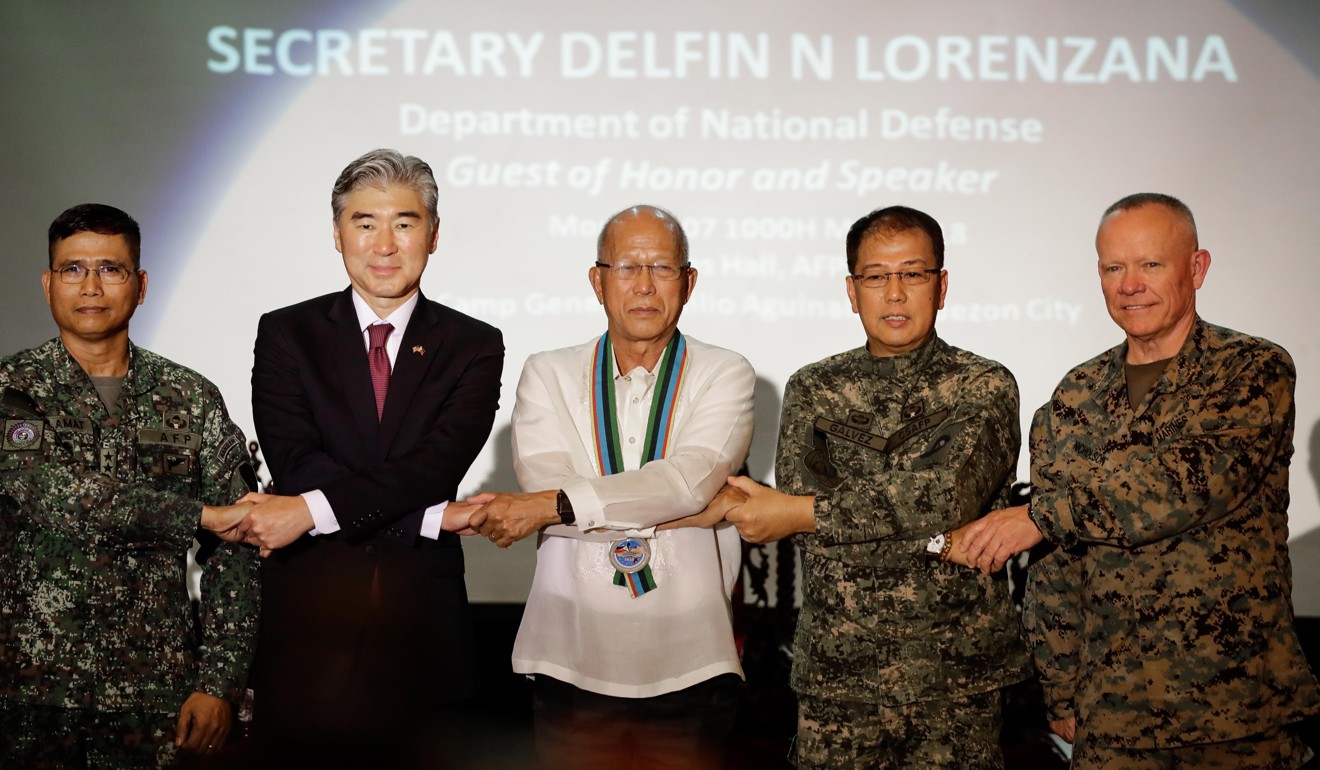
“Gazmin signed the amnesty itself,” Duterte pointed out. “You know, it is not possible to do that. Why? Because an act of pardon or amnesty is an act of state. It cannot be delegated to anybody but to the person or the president himself.”
Almonte, however, said delegating was a presidential power. He said the Ramos administration also delegated to a National Amnesty Commission the job of processing and approving thousands of amnesty applications of rebel soldiers, including Duterte’s Armed Forces Chief Carlito Galvez Jnr, because it would have been difficult for the president to do given the many papers that cross his desk every day requiring his signature.
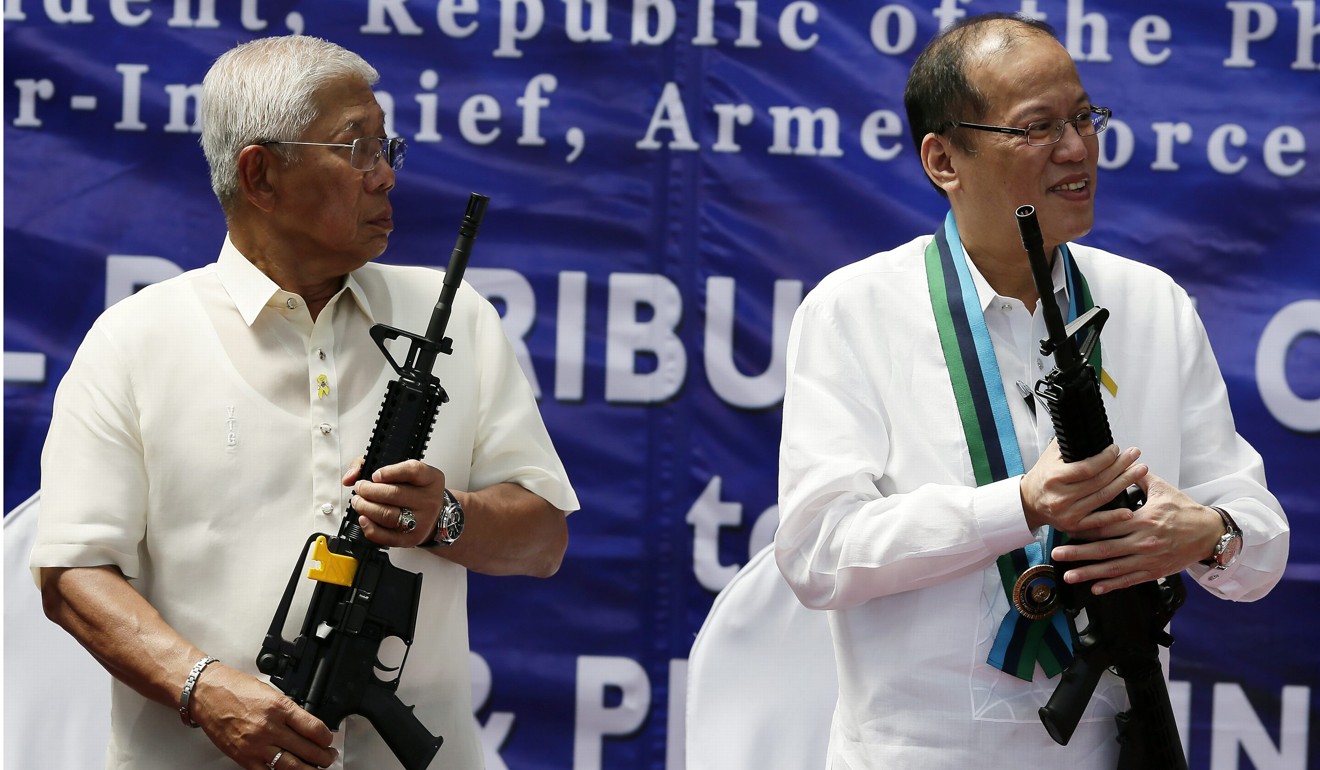
He said during the Ramos years the proper rules and procedures were followed, but it didn’t matter who signed the amnesties because it was just an administrative process.
“Whoever is the principal officer on the issue, the president delegates the signing. That’s why there is a phrase on the proclamation that says ‘approved by the president’.”
As for trying Trillanes in a military court, he said: “Court martial is an organic rule in the military discipline … but there must be a basis for the court martial.”
In Trillanes’ case, Almonte said it was “unjust” because he has already been removed from the service, served time in jail and elected senator. He also said it was not Trillanes’ fault his application went missing and called the senator “a patriot” for risking his life for “a cause bigger than himself”.
“You know the president is not above the law. But the people [are] above the president.”
He warned: “Do not create a condition which generates a moral command, so that the people will unite to fight the government … Because it is an injustice.”
Earlier, Ramos’ former Armed Force chief Rodolfo Biazon said Duterte’s action set a dangerous precedent, as amnesties given by the Ramos administration to Galvez, Senator Gregorio Honasan and Metro Manila Development Authority chairman Danilo Lim could also be revoked.

